Alexander Hentschel
A Benchmark Environment Motivated by Industrial Control Problems
Feb 06, 2018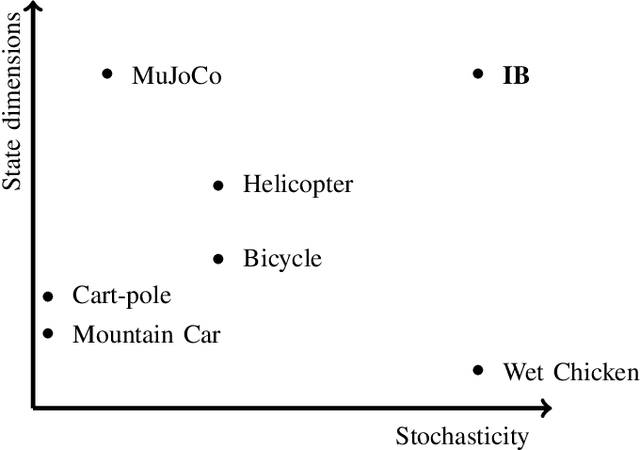
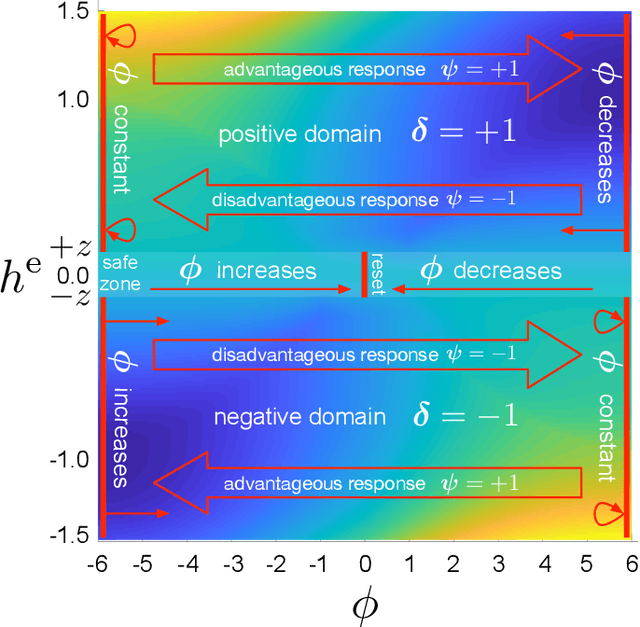
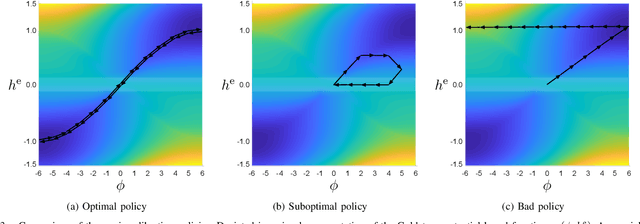
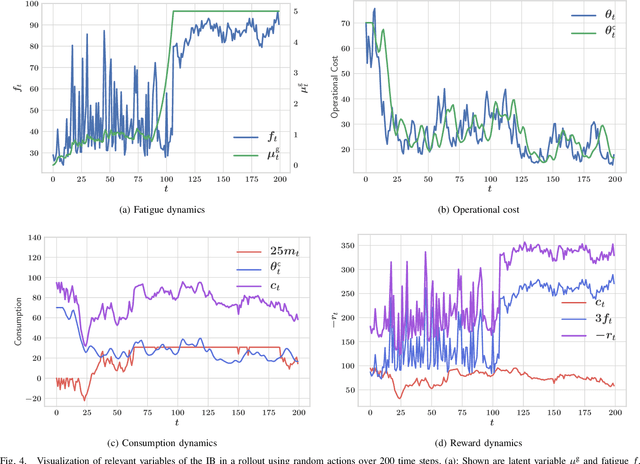
Abstract:In the research area of reinforcement learning (RL), frequently novel and promising methods are developed and introduced to the RL community. However, although many researchers are keen to apply their methods on real-world problems, implementing such methods in real industry environments often is a frustrating and tedious process. Generally, academic research groups have only limited access to real industrial data and applications. For this reason, new methods are usually developed, evaluated and compared by using artificial software benchmarks. On one hand, these benchmarks are designed to provide interpretable RL training scenarios and detailed insight into the learning process of the method on hand. On the other hand, they usually do not share much similarity with industrial real-world applications. For this reason we used our industry experience to design a benchmark which bridges the gap between freely available, documented, and motivated artificial benchmarks and properties of real industrial problems. The resulting industrial benchmark (IB) has been made publicly available to the RL community by publishing its Java and Python code, including an OpenAI Gym wrapper, on Github. In this paper we motivate and describe in detail the IB's dynamics and identify prototypic experimental settings that capture common situations in real-world industry control problems.
Introduction to the "Industrial Benchmark"
Sep 28, 2017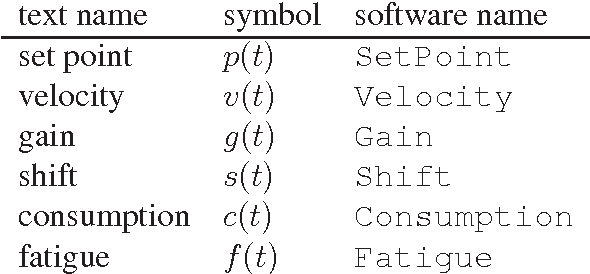
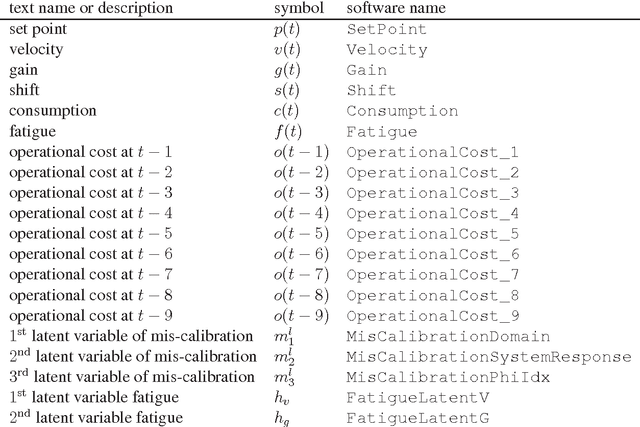
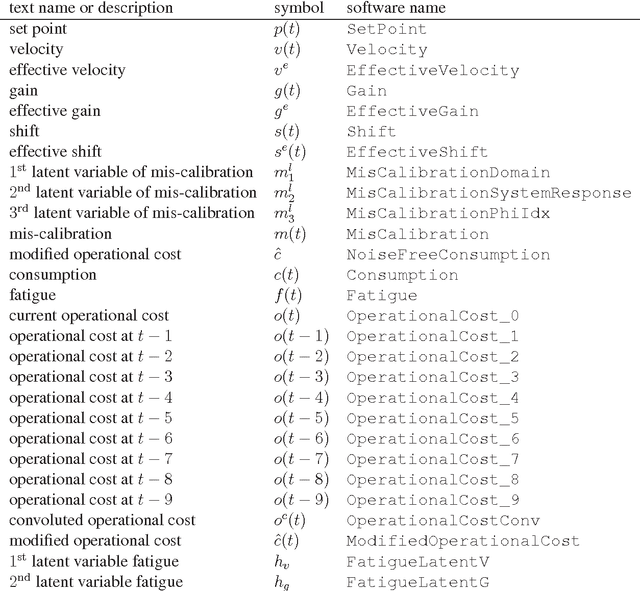
Abstract:A novel reinforcement learning benchmark, called Industrial Benchmark, is introduced. The Industrial Benchmark aims at being be realistic in the sense, that it includes a variety of aspects that we found to be vital in industrial applications. It is not designed to be an approximation of any real system, but to pose the same hardness and complexity.
Particle Swarm Optimization for Generating Interpretable Fuzzy Reinforcement Learning Policies
Aug 15, 2017



Abstract:Fuzzy controllers are efficient and interpretable system controllers for continuous state and action spaces. To date, such controllers have been constructed manually or trained automatically either using expert-generated problem-specific cost functions or incorporating detailed knowledge about the optimal control strategy. Both requirements for automatic training processes are not found in most real-world reinforcement learning (RL) problems. In such applications, online learning is often prohibited for safety reasons because online learning requires exploration of the problem's dynamics during policy training. We introduce a fuzzy particle swarm reinforcement learning (FPSRL) approach that can construct fuzzy RL policies solely by training parameters on world models that simulate real system dynamics. These world models are created by employing an autonomous machine learning technique that uses previously generated transition samples of a real system. To the best of our knowledge, this approach is the first to relate self-organizing fuzzy controllers to model-based batch RL. Therefore, FPSRL is intended to solve problems in domains where online learning is prohibited, system dynamics are relatively easy to model from previously generated default policy transition samples, and it is expected that a relatively easily interpretable control policy exists. The efficiency of the proposed approach with problems from such domains is demonstrated using three standard RL benchmarks, i.e., mountain car, cart-pole balancing, and cart-pole swing-up. Our experimental results demonstrate high-performing, interpretable fuzzy policies.
Batch Reinforcement Learning on the Industrial Benchmark: First Experiences
Jul 27, 2017



Abstract:The Particle Swarm Optimization Policy (PSO-P) has been recently introduced and proven to produce remarkable results on interacting with academic reinforcement learning benchmarks in an off-policy, batch-based setting. To further investigate the properties and feasibility on real-world applications, this paper investigates PSO-P on the so-called Industrial Benchmark (IB), a novel reinforcement learning (RL) benchmark that aims at being realistic by including a variety of aspects found in industrial applications, like continuous state and action spaces, a high dimensional, partially observable state space, delayed effects, and complex stochasticity. The experimental results of PSO-P on IB are compared to results of closed-form control policies derived from the model-based Recurrent Control Neural Network (RCNN) and the model-free Neural Fitted Q-Iteration (NFQ). Experiments show that PSO-P is not only of interest for academic benchmarks, but also for real-world industrial applications, since it also yielded the best performing policy in our IB setting. Compared to other well established RL techniques, PSO-P produced outstanding results in performance and robustness, requiring only a relatively low amount of effort in finding adequate parameters or making complex design decisions.
 Add to Chrome
Add to Chrome Add to Firefox
Add to Firefox Add to Edge
Add to Edge